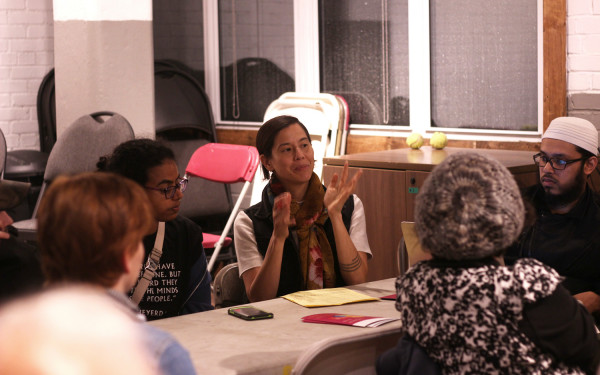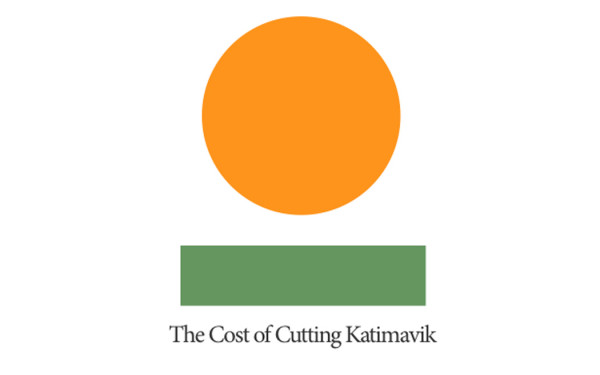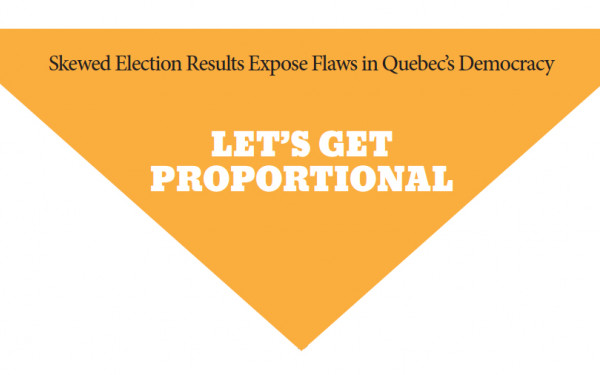The Plague That is Xenophobia
Speaking Out Against the Vilification of Muslims
What I read in the news last Friday troubled me. I haven’t felt such profound anger in a while. Perhaps it has been building up, but the new ad by the Bloc Québécois sent me over the edge.
The ad I’m referring to regards the use of a niqab to depict a point-of-view of the Parliamentary chamber. Aside from it being a political attack on a specific party that was strategically published to win back the seats it lost, this ad crosses a line.
The systematic vilification of Muslims needs to stop. I do not have a legal background, but the ad seemed to me to be a clear violation of our Human Rights Act, so I did some research. If a political ad can be construed as a “notice” to the public, then it can be subject to Section 12 of the Act, which outlines how the ad could be constituted as discriminatory if it “incites or is calculated to incite others to discriminate.”
If “accommodation” can be construed as Canada’s adaptation for diversity as mandated by the Multiculturalism Act, then Section 12 can also come into effect by invoking Section 5, which prohibits differentiating “adversely in relation to any individual” in “the provision of goods, services, facilities or accommodation customarily available to the general public.” What this means is that this ad can be subject to the terms of the Human Rights Act and that it is, by my interpretation, in violation of those terms. However, the implicit nature of legal language has its cost: equal interpretation can be used against this argument.
Nevertheless, the ad clearly undermines the Multiculturalism Act, which outlines how “diversity should be promoted, respected and protected.” Many will call this ad racism, although it would be more appropriate to deem it an act of a discriminatory nature. Unfortunately, many in Quebec will praise the Bloc. But how many will recognize a deeper truth? Xenophobia directed towards Muslims is rapidly spreading across the country. Regardless of the political situation in the Middle East, Canadians should not resort to such acts of discrimination.
I also recently read about a Quebec judge that refused to hear a woman’s case because she wore a hijab in court. This is absurd. Again, I did research to confirm my suspicions. The only relevant passage in the Regulation of the Court of Québec pertaining to court decorum is outlined in Section 13, stipulating the necessity of appropriate attire. This is obviously not sufficient to justify deeming a hijab to be inappropriate attire no matter the interpretation. The decision should be revoked.
Since before the Charter of Values debate, the mentality of intolerance has been present in Quebec, but Canada is not immune. Recently, debate arose over wearing Islamic head garb while taking the oath of citizenship and while voting. However, after reviewing the Citizenship Act, I couldn’t find any section prohibiting someone to do so. Although it largely outlined the regulations of the oath-taking process, it does not mention any requirements concerning dress; nor did I find any such section in the Elections Act, which only mentions ID cards and address.
The latter has been an issue in the past and will certainly arise this coming fall. So, if none of these actions can be supported by legislation, then why are they accepted? Why is intolerance tolerated? Furthermore, how can we ensure that Canada’s multiculturalism policy is respected, when the minister responsible for the Act supports the ban of Islamic head garb while taking the oath of citizenship? What any debate concerning diversity boils down to is: does it affect you? No. Does another individual’s religion, or ethnicity, or culture interfere with your life? No. It truly doesn’t. Whatever happened to the non-interference mentality of liberalism?
Moreover, there is one argument swimming in the midst of these debates I need to address. One most commonly used as an incentive of dissuasion. It conveys how the aforementioned mistreatments are justified because the Islamic head garb worn by women is implemented through force. This is also absurd. First, everyone is fundamentally entitled to the sanctity of his or her own will. Second, if a hijab or niqab is being worn against someone’s will, why would you punish that individual even further by depriving them of their civil or political rights?
Perhaps I’m disillusioned with what it means to be Canadian, but in moments like this, I don’t recognize my country anymore. I was brought up with the values entrenched in the Charter. The values I’m beginning to realize not all Canadians have. What went wrong?
Canada used to be internationally recognized for our social progress, peace and tolerance. Maybe I really am disillusioned. How can Canada embody these qualities? But it can. It has the potential, that much I’m certain of. We all need to stand up for the rights and freedoms of our fellow Canadians.
To those of you who take these values and qualities to heart, I implore to speak up against this sickening xenophobia that has no place in our country.







